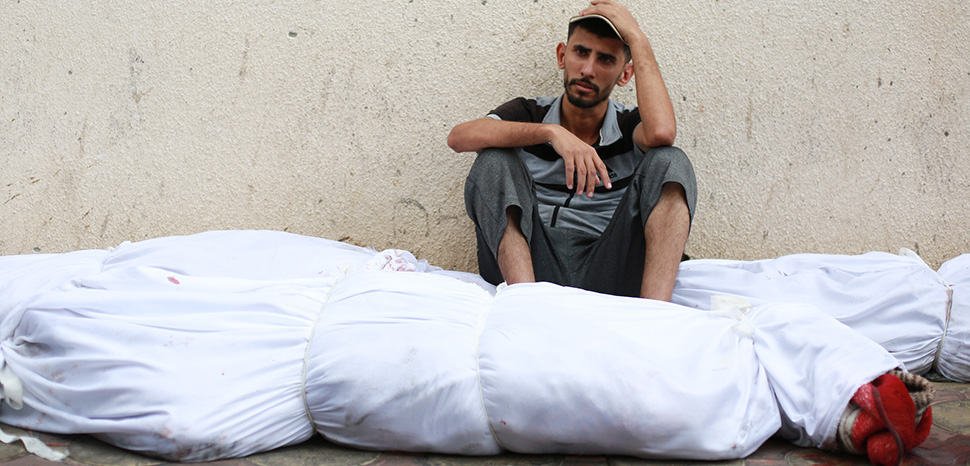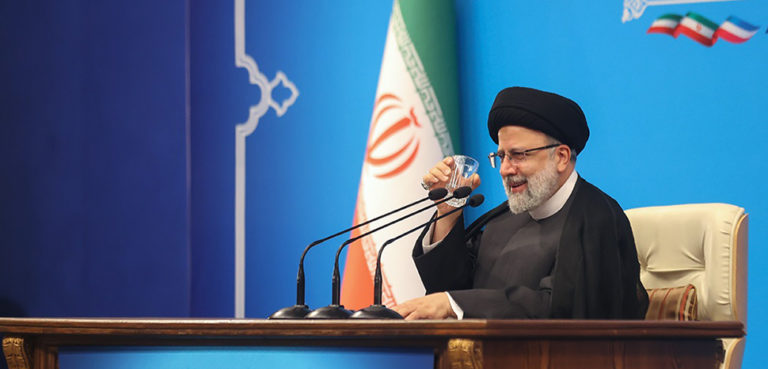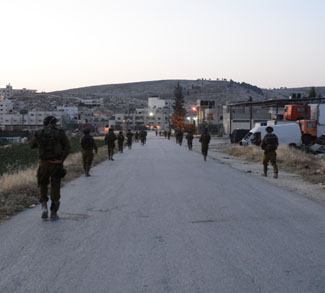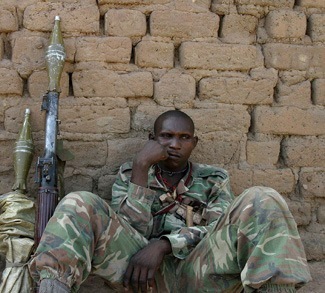The Israel-Palestinian conflict is intensifying rapidly in the wake of recent attacks by Hamas, reversing recent progress on the diplomatic front in the prospect of Israeli normalization with the Arab world. However, Israel’s response from here on out must be calculated carefully. It is understood that Israel will target Hamas group members, militants, and the group’s defense logistics; however, pursuing a collective punishment against all civilians in Gaza is a very critical issue. Distinguishing between Hamas and civilians in Gaza is a must. Gaza is one of the most densely populated places on earth, with almost two million people living in an area of around 140 square miles. Moreover, the humanitarian situation in Gaza was already in a dire state prior to the outbreak of new hostilities, making the latest deterioration all the more alarming, as recently warned by United Nations Secretary General Antonio Guterres. As of Monday, October 9th, Israel has cut off electricity, water and energy supplies to Gaza.
The emotional impact on the Arab world must be considered. The ramifications of this conflict could extend beyond the political realm, as it deeply affects the hearts and minds of people across the Arab and Muslim nations, generating resentment against Israel and a sense of helplessness in being able to help fellow Arabs in Gaza. Furthermore, the conflict will further unite the Arab world in solidarity with the Palestinians, their Muslim brethren, in the face of what is perceived as indiscriminate Israeli aggression against civilians. This emotional connection across the Arab world strengthens support for Palestine and increases pressure on governments to act, both diplomatically and materially. And it’s likely to be more powerful than previous waves in the conflict, as nowadays posts and videos on social media fuel the Arab population’s public opinion, as reflected in eruptions of pro-Palestinian protests across Arab states as well as Muslim communities in the West, for example in Turkey, Jordan, Egypt, Iraq, France, the UK, and Canada among other countries. In more tangible terms, the threat stems from the opportunity that is thus afforded to extremists and radical groups to exploit the Arab street and recruit and radicalize sympathizers. In this respect, it is extremely dangerous to view the Israel-Hamas conflict as a religious war, as stated by Republican US Senator Lindsey Graham. Should the crisis be viewed in such manner, this has the totally unwelcome potential to strain relations between Arab nations and other countries, as well as give extremists and radical groups the opportunity to perpetuate a cycle of violence leading to impeding progress towards a much-needed peaceful resolution between Israel and Palestine as well as between Israel and the broader Middle East.
The persistent and unresolved violence between Hamas and Israel generates fear and anxiety across the Arab world. The fear of potential spillover effects, including increased regional instability or the disruption of peace agreements, can be overwhelming. The long-lasting consequences of the ongoing conflict and continuously inflamed sentiments are important to consider. Israel itself is surrounded by Syria and Lebanon, both of which have armed militias that are very well supported by Iran and can get involved in the conflict scene at any moment at Iran’s request, further destabilizing the region.
Despite their longstanding animosities, KSA Crown Prince Mohamed Bin Salman and Iran’s President Ibrahim Raisi had their first call ever since the China-brokered peace agreement in March 2023 to discuss the situation in Gaza following the attacks by Hamas. The news is surprising because the rapprochement between Riyadh and Tehran has never generated concrete results outside the diplomatic field, where US-led efforts on the process of normalization between the KSA and Israel have largely occupied the media space in recent months, putting the China-brokered KSA-Iran in the background. Case in point is that, during a Fox News interview just over three weeks ago, Prince Mohamed Bin Salman announced that negotiations with Israel regarding relations normalization were moving forward. Yet with advent of the ongoing developments in Gaza, the normalization of KSA-Israel relations has ground to a halt, which is obviously in Iran’s interest. Regardless of the challenges facing the normalization of KSA-Israel relations, Iran’s regional intentions remain a matter of concern. As US Secretary of State Anthony Blinken is visiting Israel, Jordan, Qatar, Saudi Arabia, the United Arab Emirates (UAE), and Egypt to reaffirm the US condemnation of Hamas attacks and the US solidarity with Israel, Iran’s Foreign Minister Hossein Amir Abdollahian is on a diplomatic tour in Iraq, Lebanon, and Syria. On the one hand, the US official visits in the region aim to involve regional partners in Washington’s efforts to prevent the spread of the conflict to other regional areas such as Lebanon, Syria, in addition to determining mechanisms to protect civilians. On the other, Iran may be indirectly aiming to politically coordinate with senior leaders of their resistance axis so as to prolong the period of the conflict and put Israel under pressure by widening the fighting’s potential scope.
The conflict in Gaza will have an impact on Egypt, posing significant security risks. With a shared border, Egypt is on the front lines of any potential mass influx of refugees from the Gaza Strip. The exacerbated tensions along the border with Egypt may prompt it to take action to protect its own security interests. Egypt’s involvement could entail an increased military presence along the border, given that Egypt has been suffering over the past decade as a result of extremist activities and terrorism in the northeast of Sinai, close to the Gaza-Israel border. Additionally, domestic political considerations might have an impact on Egypt’s participation in the conflict, particularly given that presidential elections are coming up in December. In this respect, due to the mass displacement of civilians in Gaza as a result of the ongoing massive Israeli assault, Egypt is already facing mounting pressure to open its border to allow refugees in, which will only broaden the regional scope of the crisis. However, Egypt is highly unlikely to allow the influx of refugees from Gaza to North Sinai and has affirmed that Palestinians should hold on to their cause and land, which is “the cause of all causes, the cause of all Arabs,” as stated by Egypt’s President Abdel Fattah al-Sisi.
International powers, such as the US, Russia, and the European Union (EU), have a vested interest in preventing the conflict from further escalating. These actors often attempt to mediate between the two sides, urging restraint and striving for a peaceful resolution. However, if their efforts fail, they may be compelled to choose sides or even intervene directly, as shown by the presence of US warships at unprecedented levels over the past few days. Amplifying the conflict’s potential to snowball into a wider regional war is something the international community should avoid. Furthermore, as different global powers have contrasting geopolitical interests in the Middle East, the escalation of the conflict between Israel and Hamas as well as other Iran-backed groups in Syria and Lebanon means that Russia will not remain on the outside looking in. Especially given that Iran has been the main ally for Russia in its war on Ukraine to date, this implies that Russia is very likely to support Iran and its proxy militias across the region.
Russia has maintained a strong presence in Syria for almost a decade and has militarily supported President Assad’s regime to date. Russia did not also directly condemn Hamas attacks, a sign of possibly deteriorating ties between Israel and Russia. The situation in the north of Israel is actually more critical given that Iran-backed groups in Lebanon and Syria are fully supported by Iran. In addition to Syria itself being fully supported by Iran and Russia, it is very possible that the current conflict will bring Russia and Iran even closer toward their shared interests in the Middle East, particularly with regard to countering the West. This perhaps explains why the Arab League Chief Ahmed Aboul Gheit headed to Moscow just two days after the Hamas attacks on Israel took place.
Furthermore, the currently developing conflict in Gaza provides an opportunity for Russia in its war on Ukraine. The conflict diverts Western powers’ focus and resources towards the Middle East, allowing Russia to potentially bolster its forces, infrastructure, and capacities in Ukraine while the international community is occupied elsewhere. Russia could exploit this opportunity to consolidate territorial gains, increase support for separatist movements, or further advance its strategic interests in Eastern Europe. The diverted focus of Western allies on the Hamas-Israel conflict may inadvertently loosen regional alliances and commitments. With less scrutiny, Russia will engage in efforts to further consolidate its influence in neighboring countries within the post-Soviet sphere. By taking advantage of new geopolitical rifts, Russia may strengthen its strategic position and expand its sphere of influence in Eastern Europe, the Middle East, and West Africa.
All that said, China’s position is still unfolding towards the developing conflict in Gaza. Israel has already expressed its deep disappointment in China’s lack of condemnation of Hamas attacks. Additionally, China Foreign Minister Wang Yi has blamed the rapidly deteriorating situation in the Middle East on the lack of justice for the Palestinians. Regardless of the geopolitical dynamics of the Israeli-Palestinian conflict that have been present for decades, China’s recent statements may indicate that its views are aligned with those of Russia. Thus, adding more complexities to how different world powers conflicting views may lead to regional escalation in the Middle East. However, should the escalation unfold further in the Middle East, China is likely to monitor the scene and perhaps take advantage of the situation to advance its own agenda on different strategic fronts, including in the South China Sea and Taiwan while the West’s attention is diverted to Israel’s conflict in Gaza. Most importantly, it may be the case that China is likely to view the situation in Gaza and the enflamed Middle East as an opportunity to open an additional confrontation front with the US, thus allowing China to enforce its influence in the region for its own strategic agenda.
Overall, the situation is extremely complex given the unprecedented nature of the Hamas attacks of October 7, along with Israel’s ongoing retaliation in Gaza. Despite arguments on the motives behind Hamas’ attacks and Iran’s support, the emotional aspect resulting from the ongoing conflict in Gaza is immense and far-reaching across the Arab world. The mix of anger, solidarity, grief, fear, and the potential threat of radicalization collectively shape perceptions and attitudes among Arab populations. Achieving durable peace requires acknowledging and addressing the emotional dimensions of the conflict for both sides and empowering moderate voices within the Arab world for a peaceful resolution that respects the civilian rights and aspirations of all parties involved. As tensions continue to mount, it is imperative for international actors, regional powers, and the parties involved to exercise the utmost restraint, prioritize constructive negotiations, and work towards a sustainable and lasting peace while carefully considering the geopolitical implications of every action for international and regional powers. The last thing the world needs is a new regional war erupting in the Middle East.
The views expressed in this article belong to the authors alone and do not necessarily reflect those of Geopoliticalmonitor.com.




